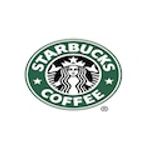Starbucks announced plans to adopt a new dairy standard for all
espresso-based drinks, making the move from whole to reduced fat
(2%) milk in all Starbucks stores in the US and Canada by the end
of 2007. At the same time, Starbucks is assessing options for
conversion to lower fat dairy in the 39 markets we operate in
outside of North America.
Now, when Starbucks customers order a beverage such as a Vanilla Latte, it is made with whole milk unless otherwise requested. This new conversion will establish reduced fat milk, also known as 2% milk, as the standard dairy in all beverages served in our North American coffeehouses. As always, customers can continue to customize their beverages to their liking by requesting it be made with whole, skim, soy or, in the U.S., even organic milk.
'Choice has always been at the heart of what we offer,' said Denny Marie Post, senior vice president of Global Food and Beverage, Starbucks Coffee Company. 'The move to reduced fat milk as our core dairy offering comes directly from our customers' requests, and while they will still have the option to customize their drinks, our standard beverages will now come with fewer calories and less fat.'
Based on increased consumer requests for reduced fat milk in our stores, and increasing purchases of lower fat milk in U.S. consumers' homes, Starbucks tested 2% milk in four North American markets earlier this year: Jacksonville, Fla.; Orange County, Calif.; the state of Oregon; and London, Ontario in Canada. In the test markets, the response from customers was overwhelmingly positive, with universally high marks for the quality and taste of beverages made with reduced fat milk. In addition, our partners (employees) have embraced the change in these markets, voicing unanimous support for a switch to reduced fat milk as our core dairy offering.
'By moving to a 2% milk standard, Starbucks is keeping all the nutritional goodness of milk while taking out some of what does not add nutritional value,' said Janet King, professor of nutrition at both the University of California at Berkeley and the University of California at Davis.
A Grande Latte made with reduced fat milk contains 32% of the protein, 40% of the calcium, 40% of the vitamin D, 15% of the vitamin A, 17% of the potassium and 10% of the magnesium it is recommended people consume daily(1), and all at only 190 calories.
The conversion to reduced fat milk will take place in all Starbucks North American company-owned and licensed stores by the end of 2007, with New York City being the first market to convert on June 5. The four markets where 2% milk was tested will also be officially converted. Outside of North America, Starbucks is assessing the opportunities, and anticipates that similar conversions will occur in markets where reduced fat milk is relevant to local customers and where an appropriate supply is available.
Now, when Starbucks customers order a beverage such as a Vanilla Latte, it is made with whole milk unless otherwise requested. This new conversion will establish reduced fat milk, also known as 2% milk, as the standard dairy in all beverages served in our North American coffeehouses. As always, customers can continue to customize their beverages to their liking by requesting it be made with whole, skim, soy or, in the U.S., even organic milk.
'Choice has always been at the heart of what we offer,' said Denny Marie Post, senior vice president of Global Food and Beverage, Starbucks Coffee Company. 'The move to reduced fat milk as our core dairy offering comes directly from our customers' requests, and while they will still have the option to customize their drinks, our standard beverages will now come with fewer calories and less fat.'
Based on increased consumer requests for reduced fat milk in our stores, and increasing purchases of lower fat milk in U.S. consumers' homes, Starbucks tested 2% milk in four North American markets earlier this year: Jacksonville, Fla.; Orange County, Calif.; the state of Oregon; and London, Ontario in Canada. In the test markets, the response from customers was overwhelmingly positive, with universally high marks for the quality and taste of beverages made with reduced fat milk. In addition, our partners (employees) have embraced the change in these markets, voicing unanimous support for a switch to reduced fat milk as our core dairy offering.
'By moving to a 2% milk standard, Starbucks is keeping all the nutritional goodness of milk while taking out some of what does not add nutritional value,' said Janet King, professor of nutrition at both the University of California at Berkeley and the University of California at Davis.
A Grande Latte made with reduced fat milk contains 32% of the protein, 40% of the calcium, 40% of the vitamin D, 15% of the vitamin A, 17% of the potassium and 10% of the magnesium it is recommended people consume daily(1), and all at only 190 calories.
The conversion to reduced fat milk will take place in all Starbucks North American company-owned and licensed stores by the end of 2007, with New York City being the first market to convert on June 5. The four markets where 2% milk was tested will also be officially converted. Outside of North America, Starbucks is assessing the opportunities, and anticipates that similar conversions will occur in markets where reduced fat milk is relevant to local customers and where an appropriate supply is available.

